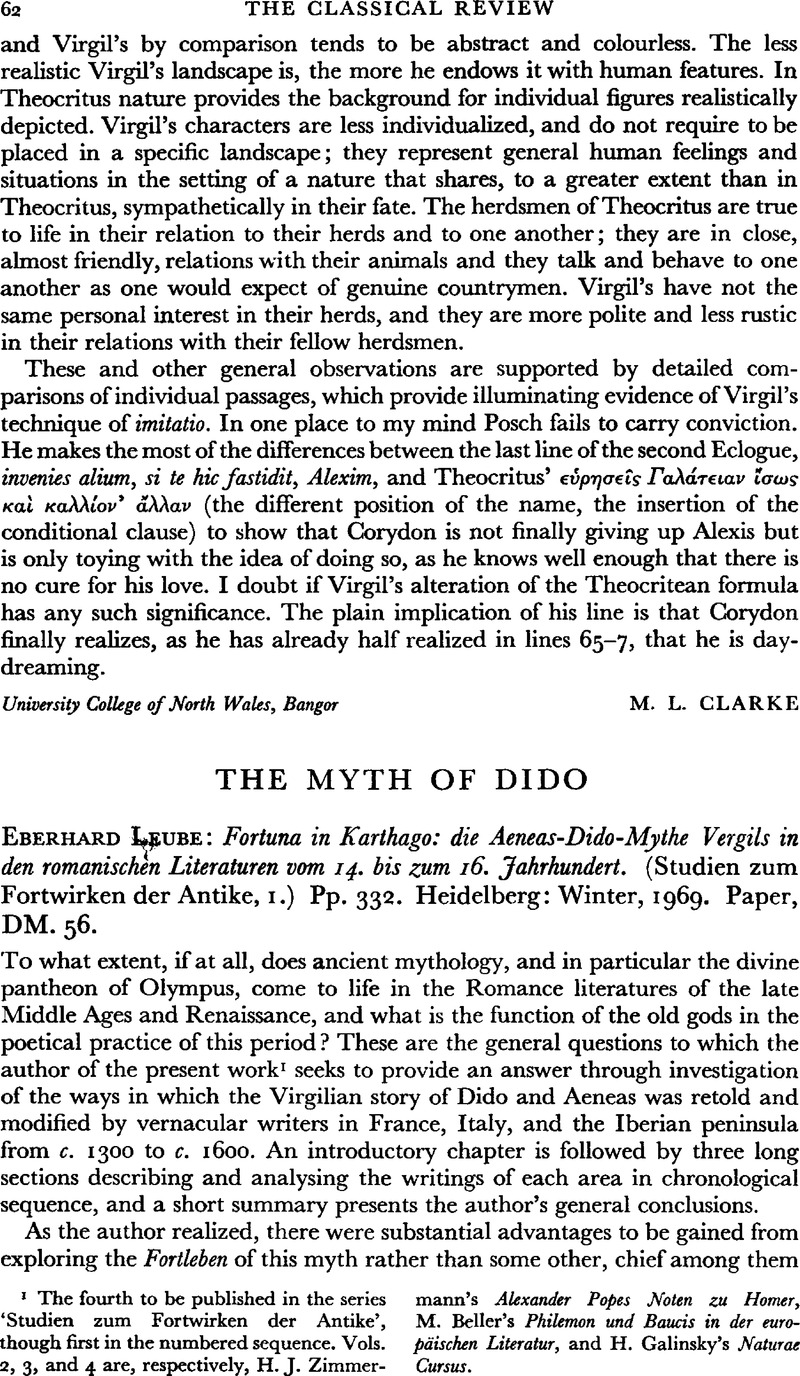No CrossRef data available.
Article contents
The Myth of Dido - Eberhard Leube: Fortuna in Karthago: die Aeneas-Dido-Mythe Vergils in den romanischen Literaturen vom 14. bis zum 16. Jahrhundert. (Studien zum Fortwirken der Antike, 1.) Pp.332. Heidelberg: Winter, 1969. Paper, DM. 56.
Published online by Cambridge University Press: 27 February 2009
Abstract

- Type
- Reviews
- Information
- Copyright
- Copyright © The Classical Association 1972
References
page 62 note 1 The fourth to be published in the series ‘Studien zum Fortwirken der Antike’, though first in the numbered sequence. Vols. 2, 3, and 4 are, respectively, H. J. Zimmermann's Alexander Popes Noten zu Homer, M. Beller's Philemon und Baucis in der euro-päischen Literatur, and H. Galinsky's Naturae Cursus.
page 63 note 1 Fourteen unpublished manuscripts, mainly of French chronicles, are now laid under contribution.
page 63 note 2 These have in any case been studied recently in L. B. Hall's The Story of Dido and Aeneas in the Middle Ages (University of Oregon thesis, 1958).
page 63 note 3 So especially in Spain, where an early tendency to demythologize the story is reinforced by the tradition, derived via Boccaccio from Justin, of the so-called ‘historical’ Dido.




